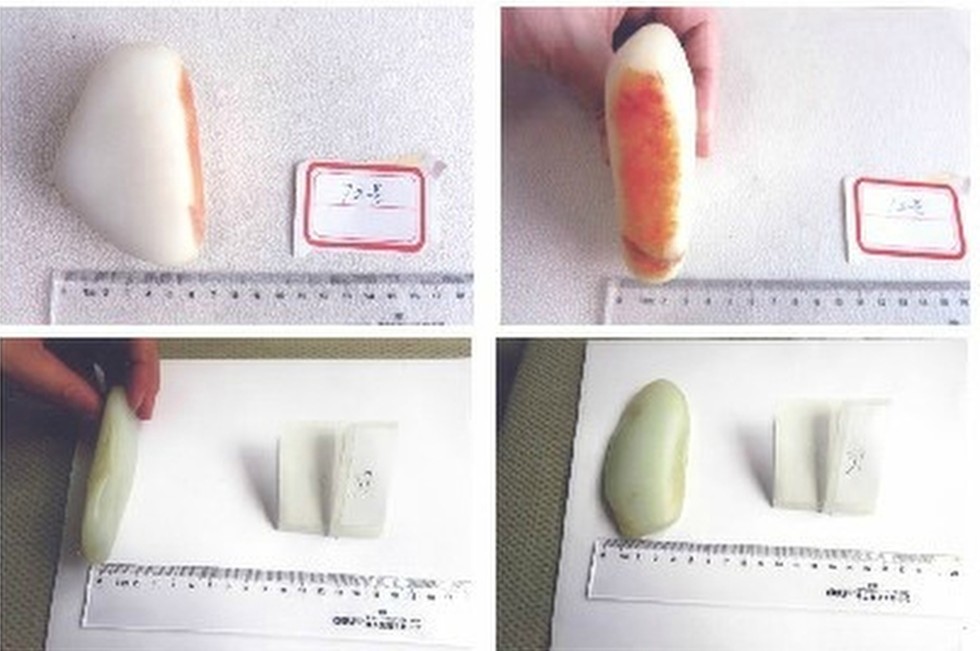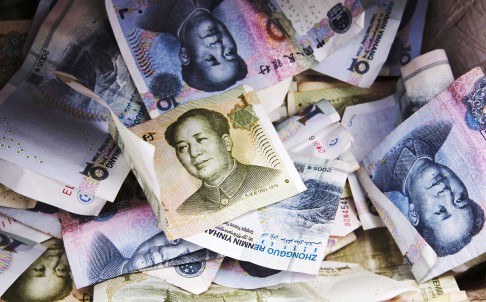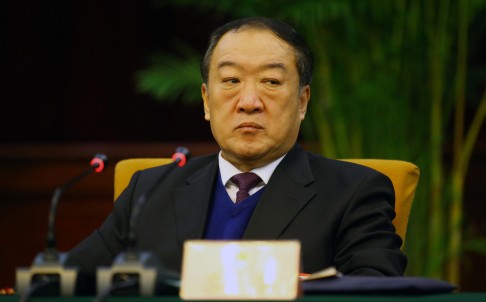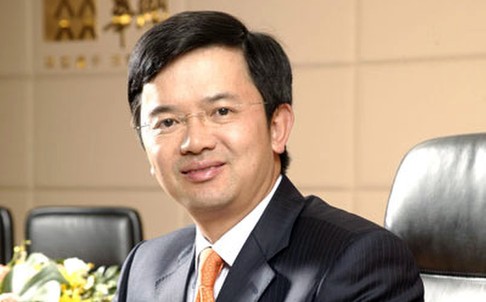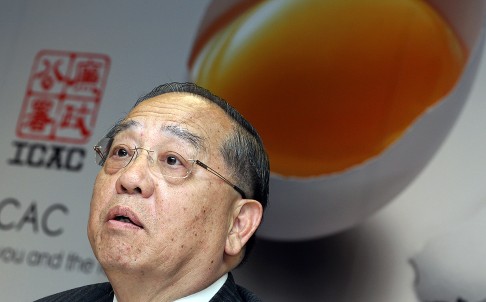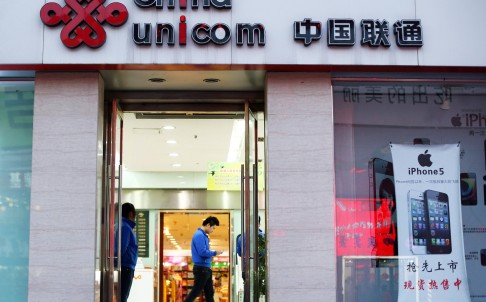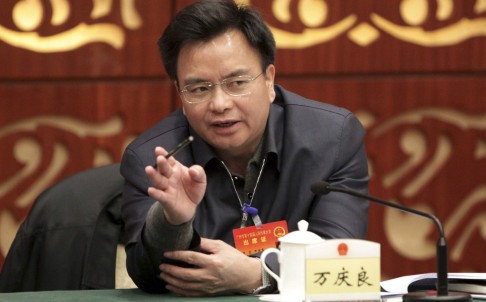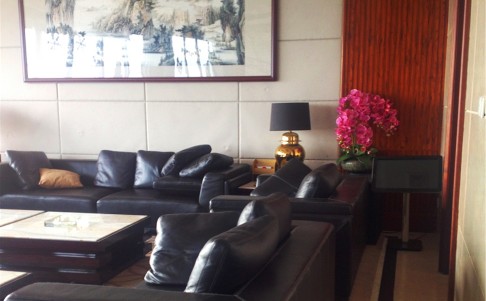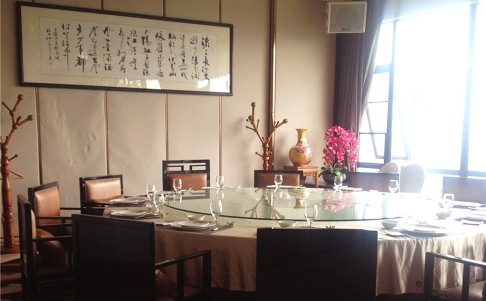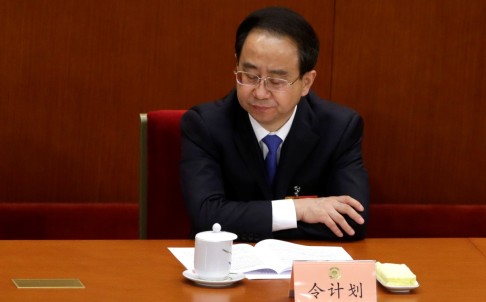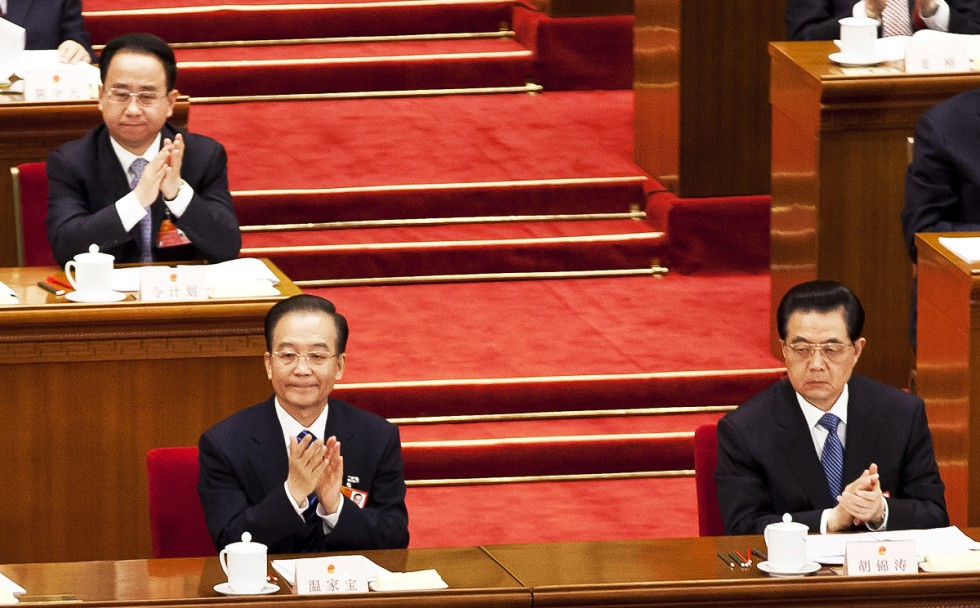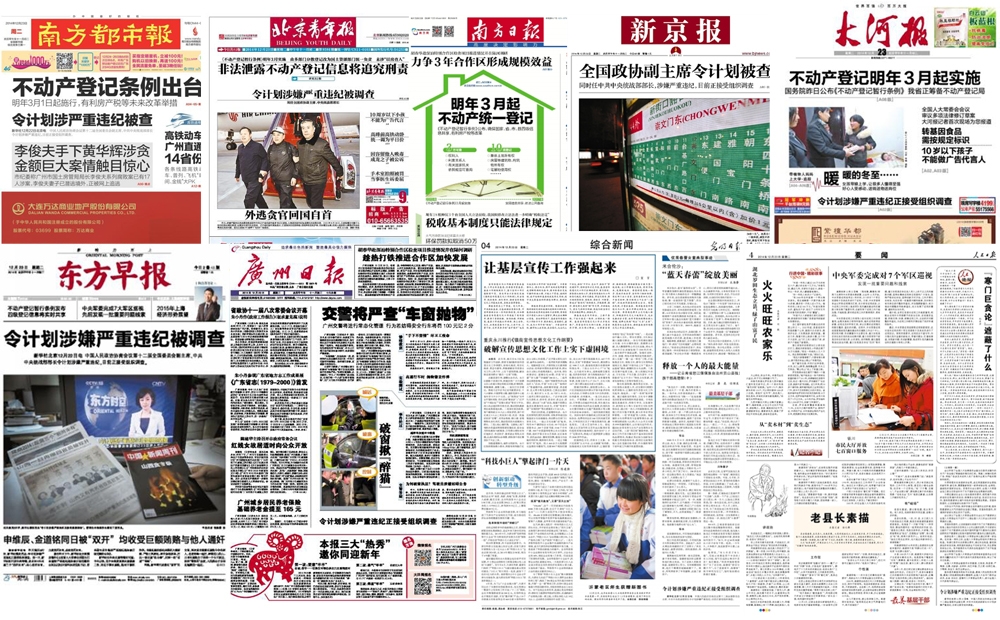Lavish lifestyle of disgraced Guangzhou party chief Wan Qingliang to feature on anti-graft TV series
TV series will explore former Guangzhou boss Wan Qingliang’s extravagant lifestyle, as corruption campaign widens in Guangdong
PUBLISHED : Sunday, 14 December, 2014, 11:09pm
UPDATED : Sunday, 14 December, 2014, 11:09pm
Mimi Lau [email protected]

Disgraced Guangzhou party boss Wan Qingliang. Photo: Reuters
Television audiences will get a glimpse into the lavish lifestyle of disgraced Guangzhou party boss Wan Qingliang as early as tonight, when the state broadcaster airs a four-episode programme produced with the nation’s top anti-graft agency.
The production by the Central Commission for Discipline Inspection and CCTV – centred on President Xi Jinping’s anti-graft campaign – will feature the luxurious clubs Wan allegedly frequented as well as businesses in high-end restaurants near the National Development and Reform Commission, the focus of much lobbying.
Analysts expect more heads to roll as a corruption crackdown widens in Guangdong, exposing bribery networks in its cities and government departments.
At least 78 department heads had been brought down this year – more than in any other province – and almost 10,000 officials were being investigated, the province’s anti-graft agency said.
“Guangdong ranks behind Sichuan and Shanxi in terms of the number of toppled big tigers, but it leads the way in cracking down on tiger-sized flies,” said Dr Peng Peng, of the Guangzhou Academy of Social Sciences, referring to local government heads deemed significant at the provincial level but minor on the national scale.
“The campaign has dissolved local power clans,” he said.
Zhu Mingguo was removed as chairman of the province’s political advisory group this month, after authorities said he was being investigated for “serious violations of party discipline and law”. He is the most senior Guangdong cadre to be investigated so far this year.
The province is still reeling from the investigation into Wan, whose downfall in June also toppled Maoming party secretary Liang Yimin; former Guangzhou Land Resources and Housing Administrative Bureau chief Li Junfu; Huadu party boss Yang Yanwen; and retired provincial Organisation Department director Lin Cunde.
Lin’s wife Zhao Yufang is Guangdong’s deputy governor, whose portfolio includes overseeing Hong Kong affairs. A number of Guangzhou’s property development chiefs are being targeted for investigation in connection with Wan’s corruption case, according to a source close to the Guangzhou government.
Wan’s case is also believed to be connected to that of former Guangzhou deputy mayor Cao Jianliao, who was expelled earlier this year for taking at least 300 million yuan (HK$380 million) in bribes.
Wan told graft-busters that Lin paid him for a “career path adjustment”, the China Economic Weekly reported earlier this month. Lin’s case is the most worrying for Guangdong officials as he was responsible for 30 appointments out of 40 key positions in 20 Guangdong cities when a new round of officials were appointed in 2012.
The new officials appointed included Liang, who reportedly bribed Lin for a promotion from being Shunde party boss in Foshan to becoming Maoming party secretary after only seven months in the job.
Jiang Zunyu, party secretary of Shenzhen’s politics and law committee, also reportedly paid Lin for a promotion. Jiang was taken away in October.
“More heads are expected to roll as many officials were promoted under Lin,” Peng said.
Additional reporting by Andrea Chen




